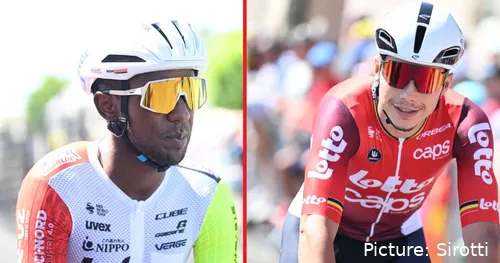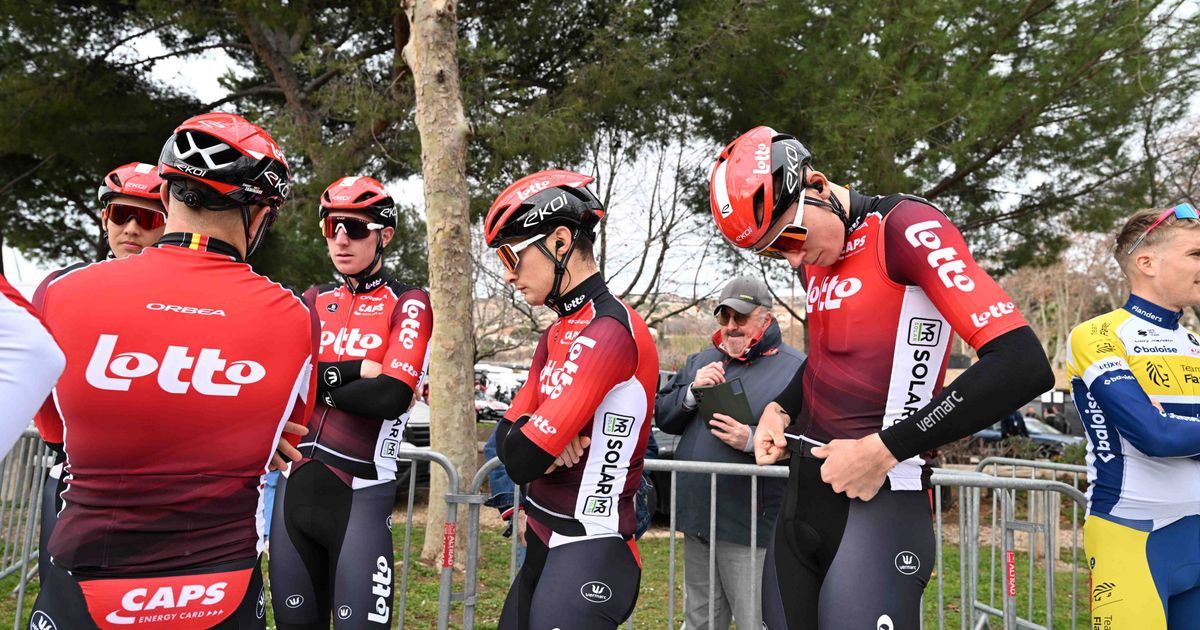“As a WorldTour team, you can have a maximum of 30 riders under contract; together, both teams have 43. From the new team’s perspective, it’s an ideal situation: they can simply choose who they want to continue with and who they don’t,” he began by noting.
“But from the cyclists’ point of view it’s unfair, because they are held hostage by this situation. As long as they have a contract in force, they can’t leave the team. So they have no choice but to wait for news,” he added.
“Even riders who were 100 percent certain they would stay came to me to ask if they were in or out. That shows how bad the communication between the team and the riders is.”

Biniam Girmay and Arnaud de Lie, in the spotlight of the Lotto-Intermarché merger
Hansen believes the key is Girmay
“A lot depends on Biniam Girmay. If he decides to stay with the merged team after all, then a rider will still lose his job. I also know a rider who was on the discard list and had found another team. However, the merged team did not let him go, because they were still hesitating about whether to keep him or not,” commented Adam Hansen.
“That suggests that Lotto and Intermarché were not entirely honest with the UCI and with us when they showed that list of casualties. That’s what I mean when I say that the riders are hostages. Teams can decide whether to keep a rider on his contract or not, but the rider can’t decide whether he wants to stay or not.”
Belgian legislation stands in the way: “That law allows teams to wait, even until, say, December 31, to inform the riders. That’s the sad reality.”
“If a rider finds out in July or August that he can’t stay and doesn’t find a team for the following year, it’s partly his fault. But if he only finds out in October or November, as in this case, then it’s the team’s fault. All the squads are already full for 2026, and that’s not fair,” he concluded.

